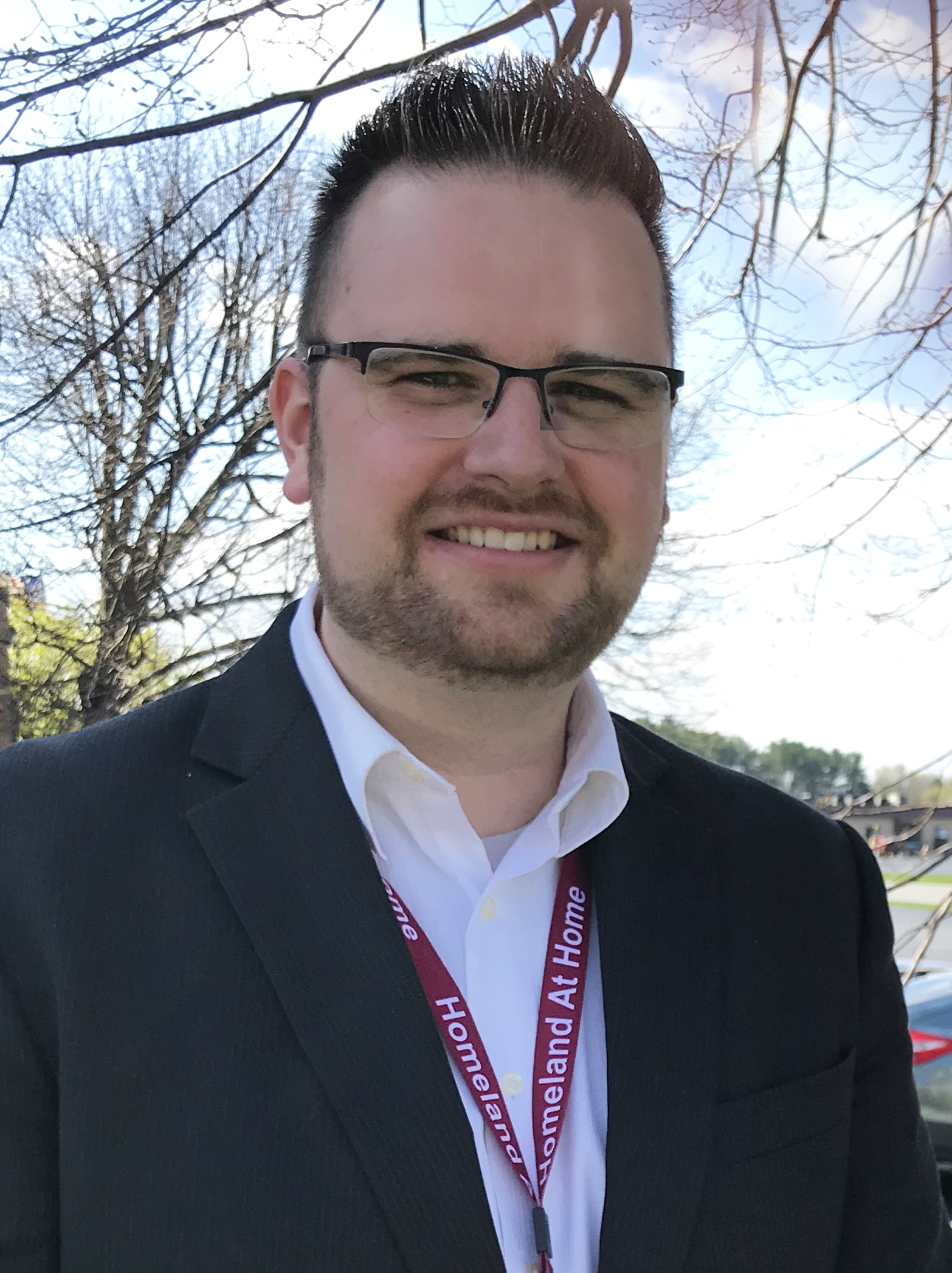A Life of Serving Others Employee Spotlight: Reynaldo Villarreal
 Having grown up in the dry climate of Mexico, Reynaldo (Rey) Villarreal, chaplain for Homeland Hospice, reveres the rolling hills and green trees of Central Pennsylvania. For Rey, life with Homeland Hospice is another chapter in his story of serving others in their time of need. Homeland Hospice is a hospice program that serves communities throughout Central Pennsylvania.
Having grown up in the dry climate of Mexico, Reynaldo (Rey) Villarreal, chaplain for Homeland Hospice, reveres the rolling hills and green trees of Central Pennsylvania. For Rey, life with Homeland Hospice is another chapter in his story of serving others in their time of need. Homeland Hospice is a hospice program that serves communities throughout Central Pennsylvania.
Rey joined Homeland Hospice in January after working as a pastor for churches in El Salvador, California and Las Vegas. Rey’s wife, who is also a pastor, was raised in Pennsylvania. The couple relocated to the area to be closer to their family as they raise their children.
Rey was raised in Mexico where is father is a pastor and his mother leads programs for women and children run by the church. As one of five children, Rey worked beside his parents and siblings to help individuals and families in need of spiritual guidance and basic needs support, like food and shelter. Through their work, Rey and his family often encountered people associated with local drug cartels who stood in opposition of the church’s mission.
“We grew up learning how to stay safe from the cartels,” Rey says. “Receiving threats on our lives, having our cars stolen and being accosted in the streets was a way of life.”
Despite these challenging circumstances, Rey’s family remained in Mexico because of the significant need for their help and the small miracles they witnessed daily.
“It was an incredible experience to see someone leave the cartels for a life with purpose,” Rey adds. “It was affirmation of the power of faith.”
While working as a pastor, Rey loved his time with the elderly members of his congregation. He looked forward to learning about their families and life story. Rey often shared his love of music during his visits. He is an avid guitar player and singer. He knew if he ever had the chance to work with patients in hospice care, he would jump at the opportunity. For Homeland Hospice and Rey, the match of mission to talent and passion has been ideal.
A few months after Rey joined Homeland, the COVID-19 pandemic hit our region, limiting access to hospice patients in many nursing homes. Rey sees the grief and loss of families as they mourn the death of their loved ones during a time of social distancing.
As some restrictions have lifted this summer, Rey has returned to several nursing homes to spend time with patients during their end-of-life journey. He strives to go the extra mile in supporting staff and caregivers during this challenging time.
“I try to let everyone see the smile in my eyes since they can’t see it through my mask,” Rey says. “Now, more than ever, we need to connect with one another any way we can.”
Rey looks forward to the days when he can bring his guitar and sing to patients once again.
“Music has the power to brighten everyone’s soul,” Rey adds. “I can’t wait to give that gift to patients.”
Spiritual counseling is a component of Homeland’s holistic approach to health care. Counselors and chaplains respect each individual’s beliefs and offer support and encouragement. In addition, Homeland offers bereavement support to families for a full 13 months following the death of a loved one.
To learn more, please contact Homeland Hospice at (717) 221-7890.

 We may not have control over the normal aging process or our genetic make-up, but we do have control over our lifestyles and the environment in which we choose to live. The following four lifestyle choices can greatly increase our chance of a healthy strong body as well as decrease our risk for disease and dementia:
We may not have control over the normal aging process or our genetic make-up, but we do have control over our lifestyles and the environment in which we choose to live. The following four lifestyle choices can greatly increase our chance of a healthy strong body as well as decrease our risk for disease and dementia:
